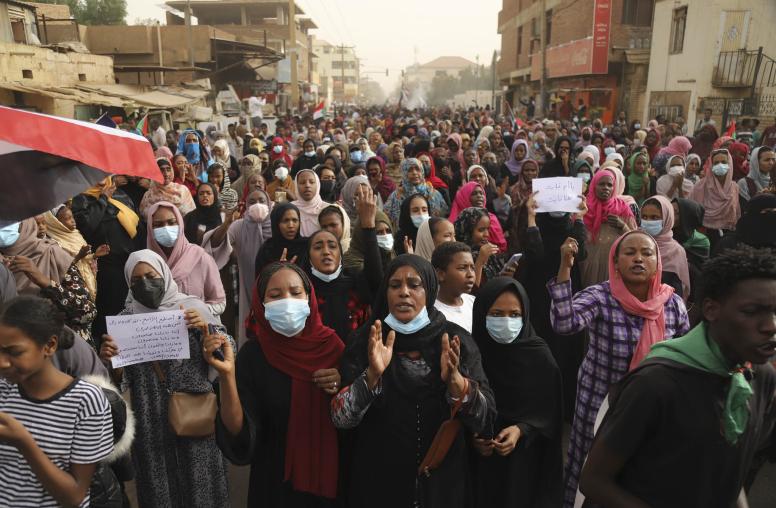Motives, Benefits, and Sacred Values: Examining the Psychology of Nonviolent Action and Violent Extremism
What motivates one person to engage in acts of violent extremism, while others choose to pursue change through nonviolent action? This report is based on pilot research into the psychological and social dynamics of a nonviolent resistance group—Algeria’s Hirak movement—that employs some of the same measures used to study participation in violent extremist organizations. A deeper understanding of these dynamics, it is hoped, will help practitioners, policymakers, and researchers to identify and support paths away from violent extremism and to strengthen and sustain engagement in nonviolent action.

Summary
The motivations for and benefits of participating in violent extremism have been extensively researched. A smaller literature exists on the motivations for and benefits of participating in nonviolent resistance movements. Combining the insights from these literatures should yield major benefits for practitioners and policymakers, particularly in understanding the less-studied nonviolent activism.
This report presents the results of a novel effort to study these two fields in tandem through an in-person survey of activists participating in the Hirak, a nonviolent resistance movement that arose in Algeria in 2019 in protest of President Abdelaziz Bouteflika’s decision to run for a fifth term and has continued up to the present with the goal of driving reform of the political system. The survey sought to test to what degree several key factors found to motivate participation in violent extremism were also selected as motivating factors by Hirak participants. Key similarities uncovered include strong feelings of identification with the group, trust in other group members, and views of the movement’s goal—in the case of the Hirak, the goal of democracy—as an uncompromisable “sacred value.” Yet the Hirak members surveyed mentioned few of the negative motivators previously identified in the literature for participating in violent extremism, such as feelings of low status or victimhood.
The results offer insights in two directions. First, they better inform several challenges nonviolent action movements encounter in recruitment, mobilization, and achieving their stated goals. Second, they may lead to better identification of the unique pathways into violent extremism, distinct from similar pathways that lead to nonviolent action.
About the Report
This report examines the psychological and social factors that motivate participation in an ongoing nonviolent action campaign in Algeria. It is based on survey research conducted in early 2020 in partnership between the United States Institute of Peace (USIP) and Beyond Conflict and is part of the Neuroscience of Resistance and Violent Extremism (NERVE) project, a joint effort of USIP’s Nonviolent Action and Countering Violent Extremism programs.
About the Authors
Jonathan Pinckney is a senior researcher with the Nonviolent Action Program at USIP and the author of From Dissent to Democracy, published by Oxford University Press in 2019. Michael Niconchuk is the program director for trauma and violent conflict at Beyond Conflict. Sarah Ryan is a social psychology lab manager at the University of Illinois, Chicago, and was previously a research assistant for Beyond Conflict.


